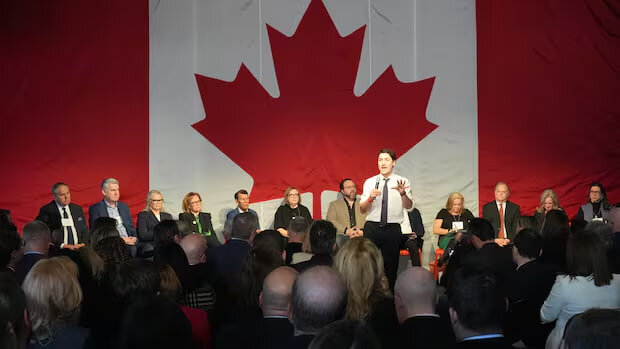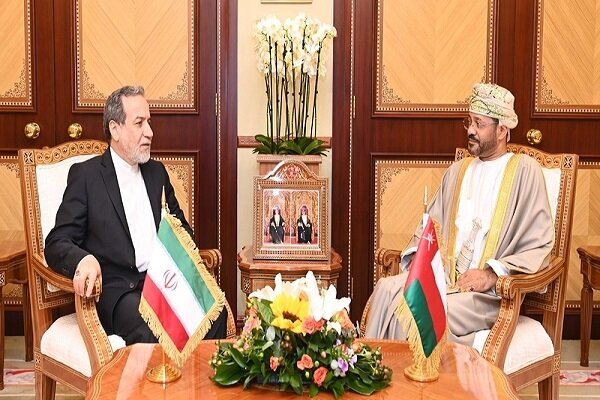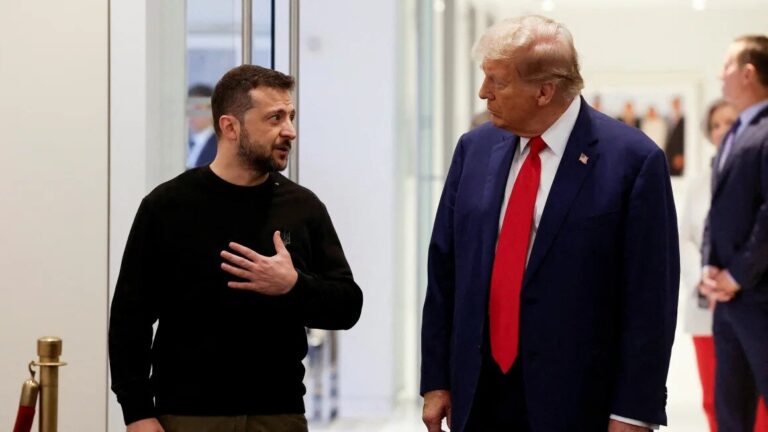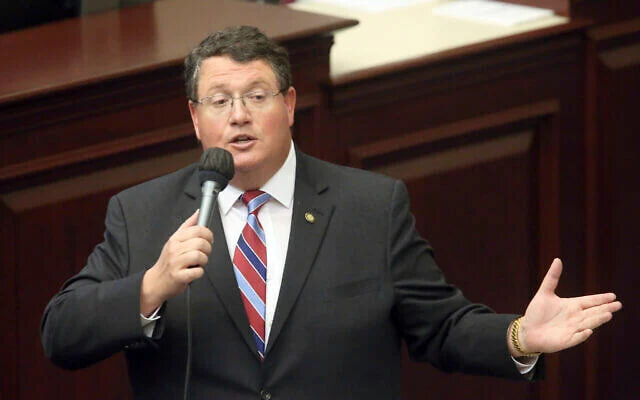Trudeau Warns: Trump’s 51st State Threat is a Serious Concern!
In a significant address at the Canada-U.S. Economic Summit held in Toronto, Prime Minister Justin Trudeau highlighted pressing concerns regarding the trading relationship between Canada and the United States. His remarks included a startling statement about U.S. President Donald Trump’s intentions regarding Canada, which he described as a “real thing.” In this article, we will delve into Trudeau’s comments, the implications for Canada-U.S. relations, and the strategic approaches that may shape the future of trade between the two nations.
During his opening remarks at the summit, Trudeau emphasized the importance of addressing key issues affecting Canada’s economic ties with the U.S. His comments were made in a closed-door setting, but a microphone left on captured his candid thoughts. He stated, “Mr. Trump has it in mind that the easiest way to do it is absorbing our country, and it is a real thing.” This assertion has sparked discussions about the potential risks Canada faces in its relationship with the U.S.
In response to Trudeau’s comments, Labour Minister Steven MacKinnon reassured Canadians of their sovereignty. He stated, “Canada is free, Canada is sovereign, Canada will choose its own destiny, thank you very much.” MacKinnon highlighted the unity among Canadians, regardless of regional and political differences, emphasizing the country’s ability to make its own choices.
Trudeau’s address focused on the need for both immediate and long-term strategies to navigate the complexities of U.S. tariffs and trade policies. He stated, “We are in a moment… to see not just how we get through this particular challenge over the next 30 days or few months, but how we get through and thrive and grow stronger over the next four years.” This highlights the necessity for a comprehensive approach to trade that is responsive to both current challenges and future dynamics with the United States.
- **Short-term Tactical Response:** Trudeau emphasized the need for immediate actions to counter Trump’s tariff threats.
- **Long-term Strategy:** There is a pressing need to develop a strategy for dealing with a potentially less cooperative U.S. in the future.
- **Internal Free-Trade Agreement:** Discussions will focus on delivering a free-trade deal within Canada.
- **Leveraging Existing Trade Agreements:** Canada needs to effectively utilize its trade agreements with Europe and the Pacific Rim.
Following a tense weekend, Trump announced a temporary suspension of his promise to impose 25% tariffs on Canadian goods, allowing for a month-long reprieve. Trudeau noted that even with this pause, concerns remain regarding the future of Canada-U.S. trade relations. He stated that the summit aims to “galvanize our economy, create more jobs and bigger paychecks, make it easier to build and trade within our borders and diversify export markets.”
One of the significant points raised by Trudeau was the challenge of interprovincial trade. Business leaders in Canada often express frustration over the barriers that make it easier to trade with foreign countries than with other provinces. These barriers include:
- Restrictions on alcohol sales.
- Technical barriers such as vehicle weight standards.
- Regulatory barriers involving licensing and paperwork requirements.
Trudeau stated that all Canadian premiers are united in wanting to eliminate these internal trade barriers, asserting, “This is one of those moments and opportunities where we actually can.” He called for a concerted effort from governments and business leaders to push for a truly internal free trade agreement in Canada.
Internal Trade Minister Anita Anand confirmed that it is possible to address interprovincial trade barriers rapidly, stating, “The short answer to your question is yes.” Trudeau acknowledged that Canada’s proximity to the U.S. means that North-South trade will remain a significant part of the economy, and thus, Canada must approach these trade relationships strategically.
Trudeau urged Canada to take advantage of its numerous trade agreements, particularly with the European Union, Pacific Rim countries, and the United Kingdom. He emphasized that merely signing trade deals is not enough; Canada must actively engage in trade missions and forge partnerships to maximize their benefits.
He remarked, “It’s not enough to just sign a trade deal, we have to then follow up on it with trade missions, with actual investments, with partnerships.” The summit aims to identify how Canada can enhance its trade agreements and diversify its supply chains effectively.
In a contrasting perspective, Conservative MP Michael Barrett criticized the summit, arguing that Trudeau should recall Parliament to address the pressing issues arising from Trump’s policies. Barrett stated, “What issues could be more important than what is being addressed in the Trudeau performance in Toronto today?” He called for a legislative response to Trump’s tariffs, emphasizing the importance of parliamentary debate on these critical matters.
In conclusion, the Canada-U.S. Economic Summit has highlighted the complexities and challenges of the trading relationship between Canada and the United States. Trudeau’s remarks underscore the need for a robust and strategic approach to trade, both internally and externally, as Canada navigates its path forward in an ever-evolving political landscape. As discussions unfold, it is clear that the outcomes of this summit could significantly influence Canada’s economic future.






